Zhaobao Mountain, Ningbo - Eintrittskarten, Öffnungszeiten, Lage und Highlights

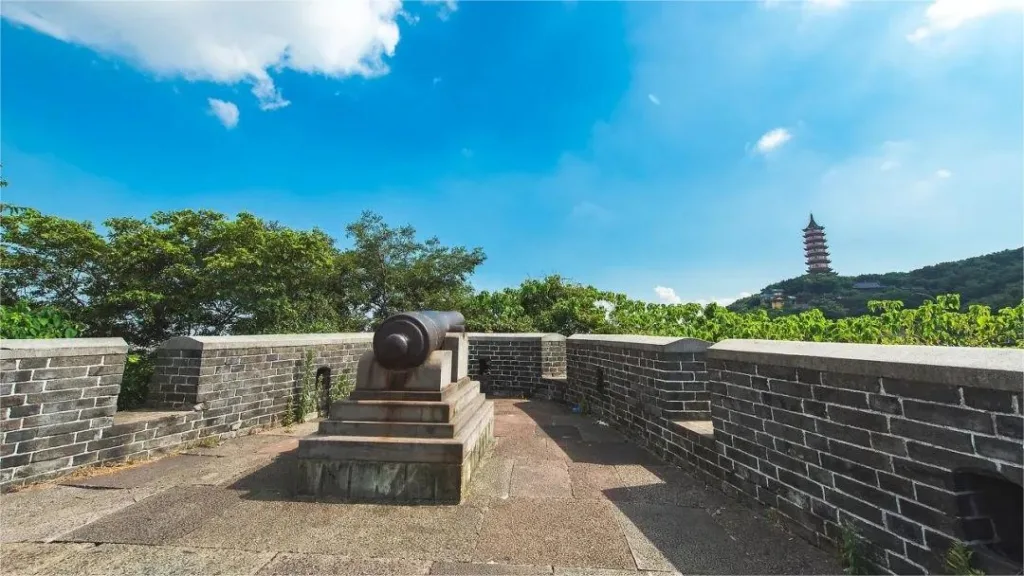
Nestled at the mouth of the Yong River in Ningbo, Zhaobao Mountain (招宝山) stands as a sentinel overlooking the sea, serving historically as the key defensive outpost known as the “Eastern Gate” of Zhejiang. This majestic mountain seamlessly blends natural beauty, cultural heritage, and religious significance, bearing witness to centuries of warfare and resilience against foreign invasions, including conflicts against Japanese pirates, British forces, French invaders, and Japanese aggression.
The mountain boasts a wealth of historical sites and cultural landmarks, including the Zhenhai Pass Coastal Defense Ruins, the Zhenhai Pass Coastal Defense Historical Relics Museum, the Aozhu Pagoda, the Bao Tu Temple, the Guanyin Pavilion, the Zhaobao Mountain Bridge, ancient seawalls, and the Wanghai Tower.
Inhaltsübersicht
- Grundlegende Informationen
- Standort und Transport
- Highlights of Zhaobao Mountain
- Vlog about Zhaobao Mountain
- Andere Attraktionen in den Vororten von Ningbo
Grundlegende Informationen
| Geschätzte Dauer der Tour | 2 - 3 Stunden |
| Ticketpreis | 60 RMB |
| Die Öffnungszeiten | 8.30 – 16.00 |
| Telefon Nummer | 0086-0574-86256931 |
Standort und Transport
Located at 10 Zhaobaoshan Road, Chengguan, Zhenhai District, Ningbo City, Zhejiang Province, China, Zhaobao Mountain is approximately 15 kilometers away from the downtown area of Ningbo. To get there, you can first take metro line 2 and then transfer to bus 385 or 541 at the Exit D of Zhaobaoshan Station (招宝山站) to cover the remaining 1.4 kilometers.
Highlights of Zhaobao Mountain
Historical Relics
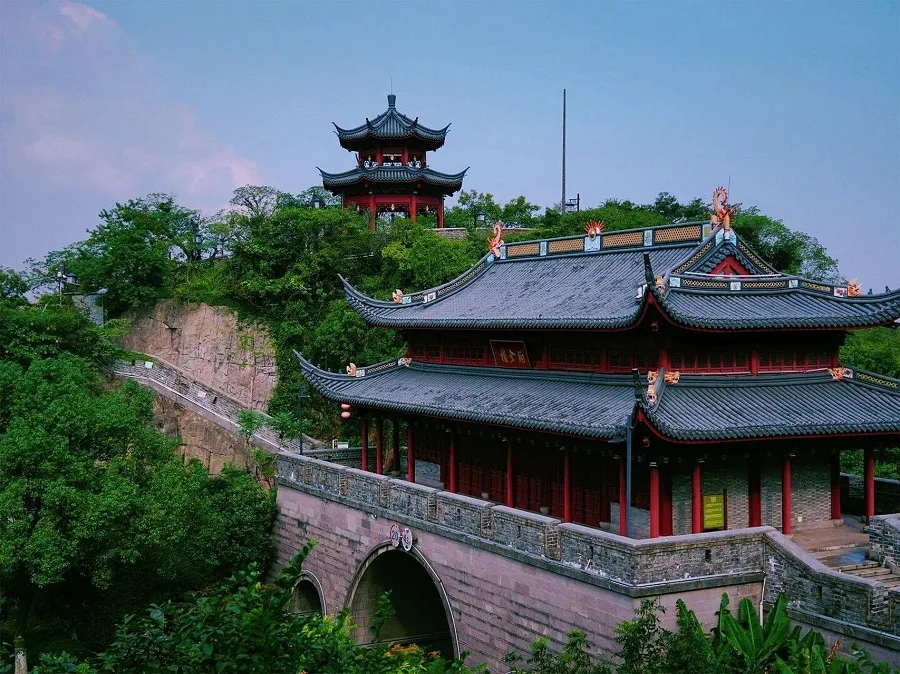
Dominating the summit of Zhaobao Mountain is the imposing Weiyan City, initially constructed in the spring of the 39th year of the Jiajing reign of the Ming Dynasty (1560 AD). This formidable fortress spans approximately 502 meters in circumference, with walls reaching varying heights of 7.4 meters. Throughout history, Weiyan City witnessed and withstood numerous conflicts, including battles against Japanese pirates, British forces, French invaders, and Japanese aggressors. The Aozhu Pagoda, an architectural marvel inspired by Song Dynasty design, stands tall at 57.6 meters, featuring seven stories with an octagonal shape and a bronze spire crowning its summit. Ascending the pagoda offers visitors panoramic views of the boundless sea and sky, offering a glimpse into the timeless beauty of the coastal landscape.
Bao Tuo Temple
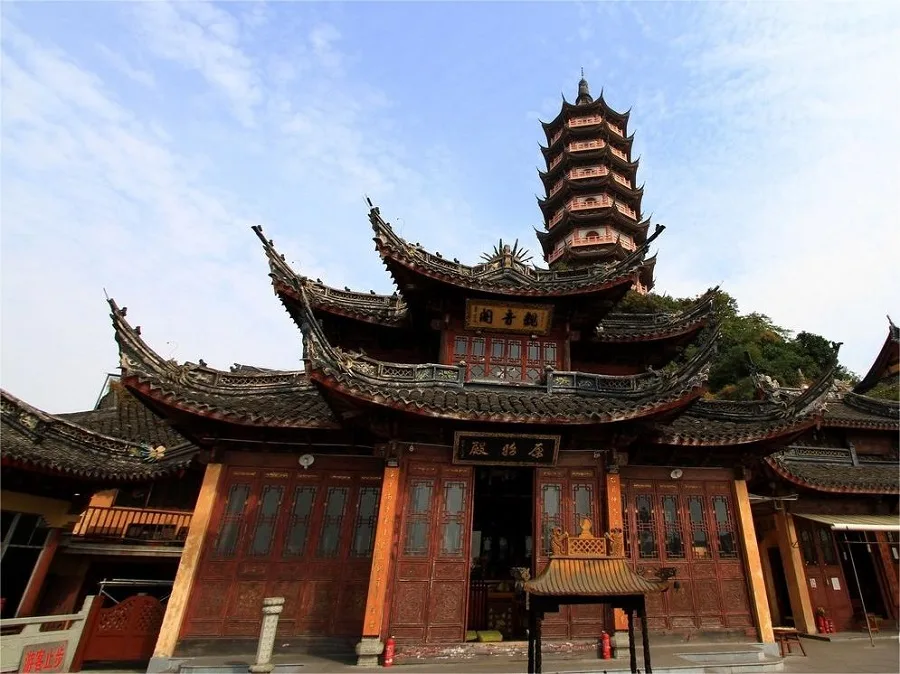
Nestled within the confines of Weiyan City atop Zhaobao Mountain lies the Bao Tuo Temple, originally constructed on Mount Putuo during the Tang Dynasty and later relocated to Zhenhai by the Ming Dynasty Governor of Zhejiang, Hu Zongxian, in the 36th year of the Jiajing reign (1557 AD). Renowned for its association with Guanyin Bodhisattva and its relocation from Mount Putuo, the temple attracts throngs of devout worshippers, especially during significant Buddhist observances such as Guanyin’s birthday, enlightenment, and ordination on the 19th day of the second, sixth, and ninth lunar months respectively.
Vlog about Zhaobao Mountain
Andere Attraktionen in den Vororten von Ningbo
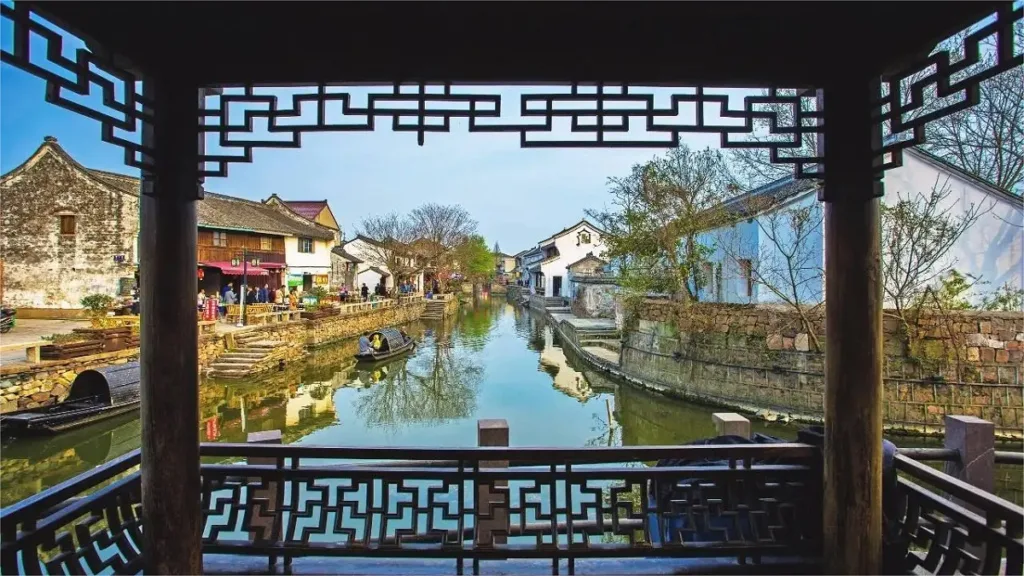
Minghe Antike Stadt

Antike Stadt Qiantong
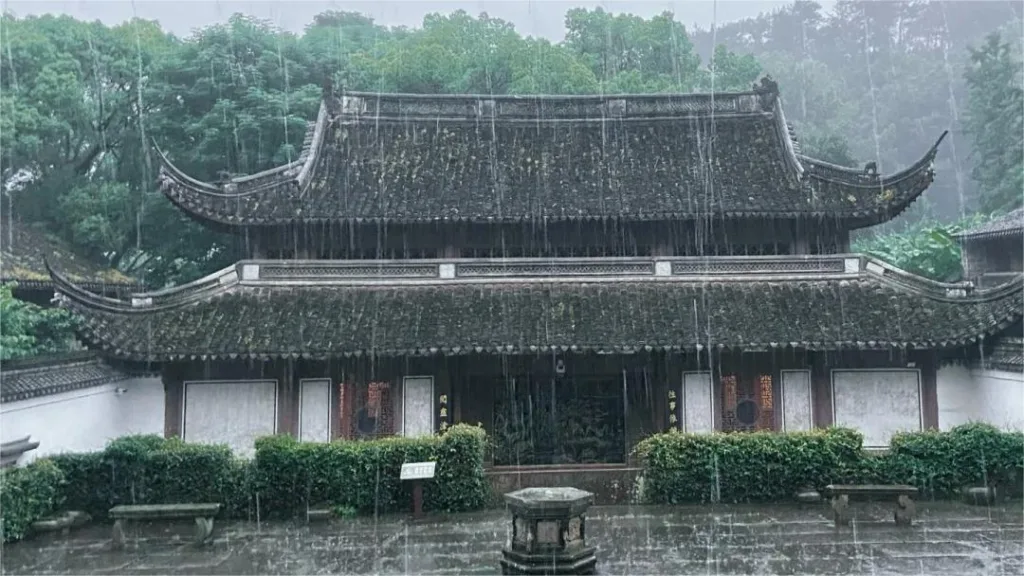
Baoguo-Tempel
Ningbo Attraktionen, Zhejiang-Landschaft